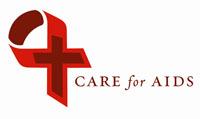 The global battle against AIDS in Africa will take a local turn next week when UA students launch a book drive to provide relief to the AIDS-ravaged country of Kenya.
The global battle against AIDS in Africa will take a local turn next week when UA students launch a book drive to provide relief to the AIDS-ravaged country of Kenya.
Care for AIDS will conduct a textbook drive May 4-7 outside of Reese Phifer Hall to raise money for Kenyan AIDS victims. Students are encouraged to donate their books between 9 a.m. and 4:30 p.m. In the event of rain, the drive will be held in the foyer of Reese Phifer.
The University Supply Store partnered with Care for AIDS, giving the value of the donated books directly to Care for AIDS relief centers. Books the SUPe Store doesn’t purchase will be shipped to various book retailers working with Cure for AIDS, and then they will be sold online.
Joe Garmon, a junior majoring in political science, said he organized the UA book drive because he believes the burden lies on this generation to make a difference in Africa.
“I think things have been done to help, but what it will take is young leaders within our generation to step up and take action,” he said. “I started working with this organization to empower students on our campus to get involved and make a difference.”
The organization’s efforts inspired several UA students to volunteer their time to the book drive.
“I got involved when I learned about the organization,” said Hunter Coward, a senior majoring in communication studies. “CFA is a great organization that is doing a lot to meet the needs of those that have been infected with HIV or AIDS.
“When I learned more about what the organization was doing and the impact that it’s having, I felt it was more than worthy of my time.”
Care for AIDS will be hosting similar events at campuses across the nation, including Pennsylvania State University, Virginia Tech University and Vanderbilt University.
As a Christian organization, Care for AIDS uses Jesus’ ministry as a blueprint to provide physical and spiritual assistance to those stricken with HIV or AIDS and to strengthen local Kenyan church communities.
CFA has six centers in Kenya, assisting 80 victims each in nine-month cycles. These centers provide food, basic health care and medical information to effectively deal with the virus.
Typically, once an African is diagnosed with AIDS, the social stigma causes their friends and family to abandon him or her. CFA’s centers counsel patients on how to find jobs and live productive lives in the wake of the personal crisis that many individuals face after contracting the disease.
Jane Munga, a political science graduate student, emigrated from Kenya in 2007 to attend Shelton State Community College, though she later transferred to the Capstone. While teaching in New York, she said she saw how some regions of the nation are much more informed than others about the state of AIDS in Africa.
“When I was in New York, I saw a lot of programs at colleges that made students aware,” she said. “It wasn’t just one big blanket problem. But, in Alabama, I believe people don’t know, because they don’t see people being affected.
“When you look at the TV channels, there isn’t a lot of international coverage. I think it’s where you are and how exposed you are to the international arena. But, to be fair, I think it’s catching on. People are aware that it’s a big issue and are beginning to work on it.”









